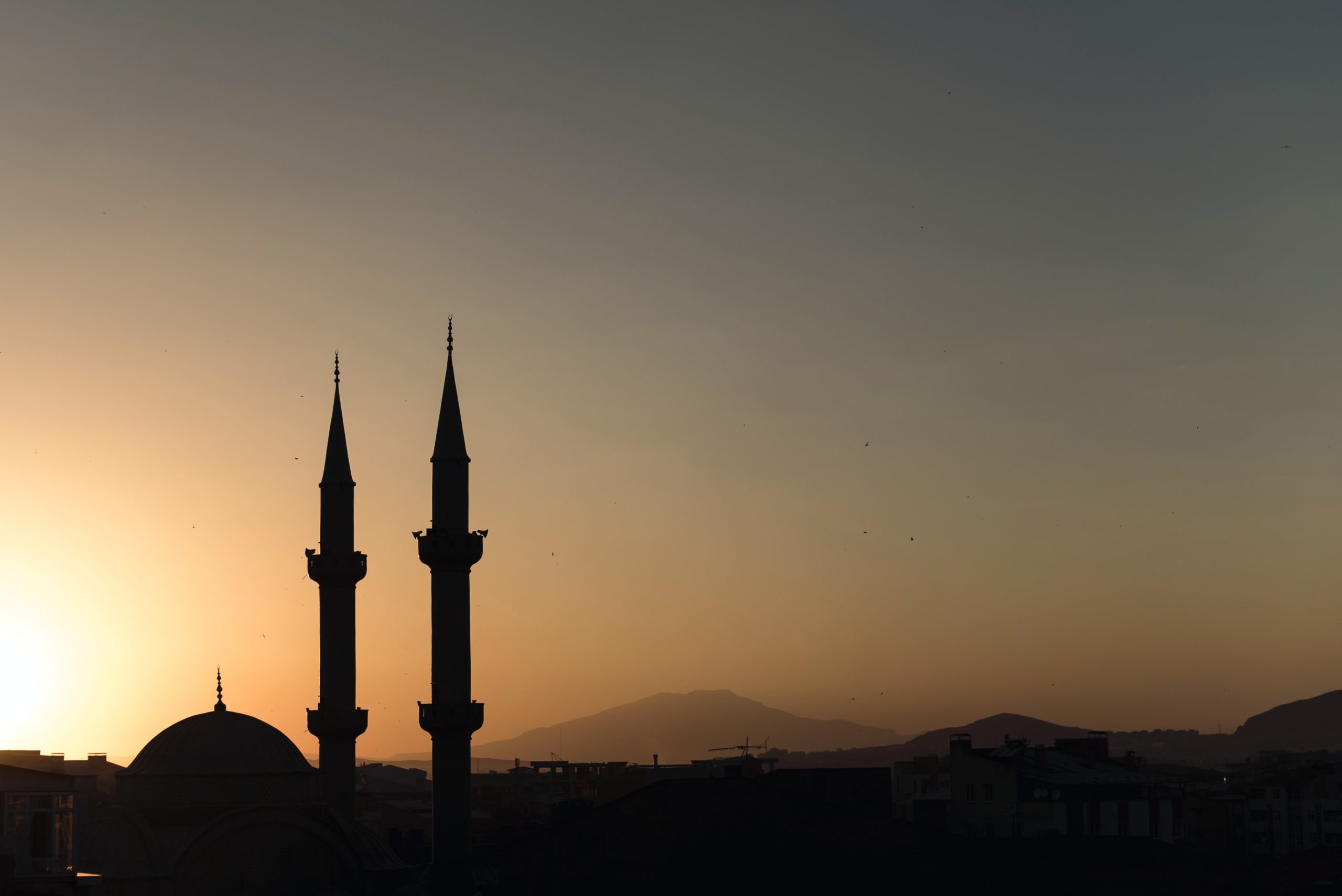With COVID 19 restrictions ongoing, a second Ramadan in lockdown will be a very different experience for Muslims in the UK. Whilst measures are more relaxed compared to 2020, many of the usual practices such as going to the mosque and visiting friends and family indoors for Iftar will unfortunately not be possible this year. As we begin to return to our workplaces, many of our Muslim colleagues will be fasting this Ramadan. The Arabic word for fasting is Sawm, which literally means to abstain. Muslims who fast will abstain from eating and drinking (yes that’s right, not even water!) from sunrise to sunset, and the average fast this year will be sixteen hours.
Ramadan is observed on the ninth month of the Islamic calendar, which follows the lunar cycle (11 days shorter than the solar Gregorian calendar) and therefore starts earlier every successive year. The sighting of the new moon indicates the start of the holy month of Ramadan, alarm clocks are set for the early hours before sunrise as Muslims around the world prepare for their first fast.
It is highly recommended to consume a pre-dawn breakfast (known as Suhoor in Arabic) before commencing morning prayer (Fajr) as the fast begins. This is followed by a few hours rest until a second alarm sounds to wake me up for work. For many, the body clock adjustments are the hardest part of fasting, as changes in sleep patterns and caffeine intake will affect my productivity levels throughout the day. As sunset begins to near, Iftar is prepared. For me, the last hour brings a time of introspection and accomplishment as the fast comes to its conclusion.
Fasting is one of the five pillars of Islam and is only prescribed to those who are able to do so. Children, those who are suffering from long term illness, the elderly, menstruating, and pregnant women are examples of those who are exempt from fasting. Aside from fasting, Muslims observing Ramadan also increase in spiritual devotional acts such as prayer, giving charity, sharing food with friends, family, and neighbours, and reaching out to those who may be fasting alone.
After the completion of Ramadan, Eid (festival) is celebrated. The day begins with a congregational prayer and the Imam (prayer leader) will deliver a sermon to signify the importance of this day followed by a reminder to maintain good habits! An Eid Zakat (charity) is given prior to offering the Eid prayer, the money is distributed to the poor to ensure they are able to celebrate Eid. On Eid it is tradition to exchange gifts, wear fresh garments and decorate the house in festive colours. Otherwise, a celebratory meal is prepared as friends and family get together, albeit virtually to adhere to social distancing measures.
Working during Ramadan can be a daunting prospect, but we prefer that no special treatment is given. A few considerations such as checking our preferences for meeting hours will be welcomed and feel free to speak to your colleagues who are fasting to ask as many questions as you like. We also don’t mind being around people who are eating or drinking, so don’t feel the need to apologise!
Having to consider social distancing is one of many challenges Muslims will face this month. Ramadan is a time of increased blessings, the reward of fasting throughout this month is why many Muslims sacrifice the very things we may take for granted. For many, it is a spiritual journey and healing process to self-improvement, to strive to become better people and to help those who are less fortunate.
Ramadan Mubarak – Greeting to wish someone a blessed Ramadan.
Iftaar – Evening meal when the fast ends.
Eid Mubarak – Greeting to wish someone a blessed Eid.
Salah – Prayer.
Zakat – Charity.
And finally, I would like to wish everyone Ramadan Mubarak!








